
Why Won't My iPhone Update to iOS 17/16/15? | 9 Reliable Solutions

"Hello everyone, I have been having some trouble updating my iPhone and I'm hoping someone here can help me. For a few months now, every time I unlock my phone I get a pop up that says "A new iOS update is now available. Please update from the iOS 16 beta." When I go to my settings to update my iPhone, there is nothing about a new update except for another pop up that says "Unable to check for update. An error occurred while checking for a software update". Does anyone know what I can do?"
- from Apple Community
Many users might have encountered the frustration of iOS won't update. This not only prevents you from enjoying the latest iOS features and security patches but can also impact your device's overall performance and stability. So, why won't my iPhone update? This article will delve into the reasons behind this issue and provide a series of practical solutions to help you resolve it with ease.
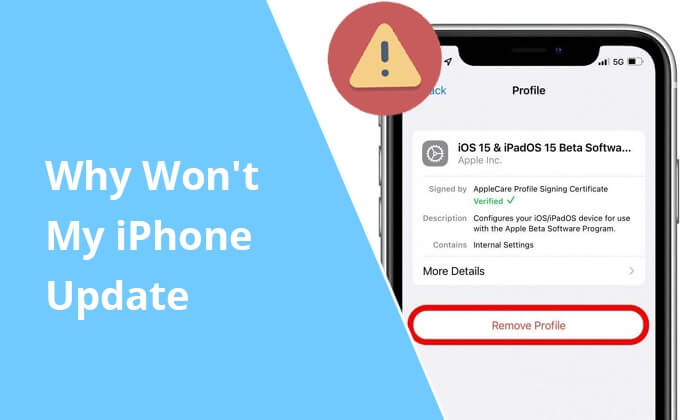
There are various reasons why my iPhone won't update, including but not limited to the following:
Now that we know the reasons of iOS update not installing, let's discuss how to solve these issues in detail. Here are some specific steps to help you successfully update your iPhone.
First, check if your iPhone is compatible with the latest iOS version. Each update comes with a list of compatible devices, and if your device is not on that list, you won't be able to update. You can visit the Apple Support page to check if your device meets the requirements. The following are the iPhone models compatible with iOS 17:
If you're unsure about your iPhone model, follow these steps:
Step 1. Open "Settings" on your iPhone.
Step 2. Tap on "General", then select "About".
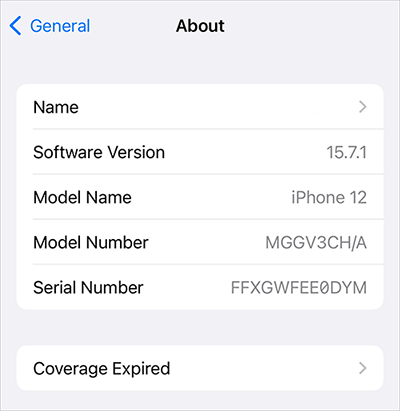
Step 3. Here, you'll find your iPhone model name and the current software version.
Another reason why my iPhone software won't update is an unstable network connection. Make sure your iPhone is connected to a stable and high-speed Wi-Fi network. Update packages are usually large, and using mobile data may result in interruptions during downloads.
You can also try switching networks or restarting your router to improve the connection quality. If that doesn't work, you can also reset your network settings. Here are the steps:
Step 1. Go to "Settings" > "General" on your iPhone.
Step 2. Scroll down and tap on "Reset".
Step 3. Select "Reset Network Settings". You may need to enter your passcode to confirm.
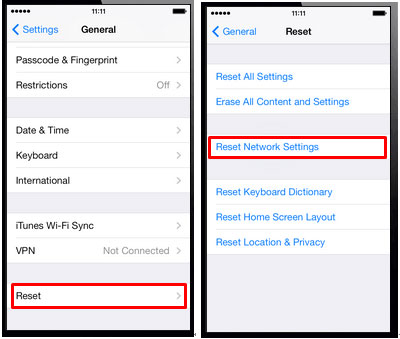
Apple updates not working may be also due to insufficient battery on the iPhone. During the update process, iPhone needs to have sufficient battery power. It is recommended to update when the battery level is above 50%, or directly connect to a power source to ensure the update process is not interrupted.
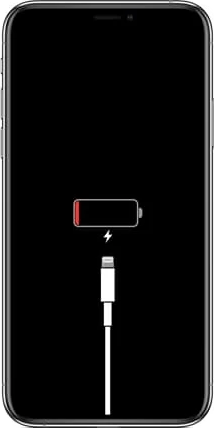
Is your iPhone overheating when charging? Read this article to learn how to fix it.
Is Your iPhone Overheating When Charging? Reasons and How to FixSometimes, software issues on the device can also cause update failures. You can try restarting the device to see if the problem is resolved. To do this, follow the steps below:
Step 1. Press and hold the power button until the "slide to power off" slider appears.
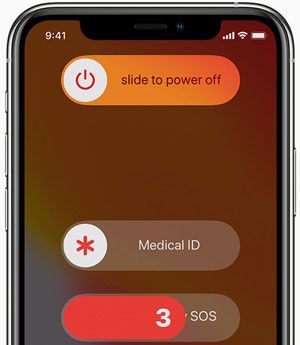
Step 2. Slide the slider to turn off the iPhone.
Step 3. Wait a few seconds, then press and hold the power button to restart the iPhone.
Why can't I update my iPhone? That's because you don't have enough iPhone storage. Updating your iPhone requires a certain amount of storage space. If your device lacks sufficient storage, the update may fail. You can free up space by deleting unnecessary apps, photos, videos, and other files.
To view and manage your storage space, go to "Settings" > "General" > "iPhone Storage".
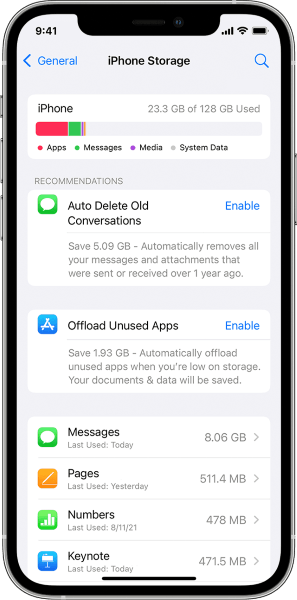
If you have installed an iOS Beta version, it may affect the update to the official version. You can remove the Beta profile through Settings. Here is how to do it:
Step 1. Open the "Settings" app on your iPhone and go to "General".
Step 2. Tap on "VPN & Device Management" and select the iOS 17 Beta configuration profile.
Step 3. Tap "Remove Profile" and restart your device to revert to the previous iOS version.
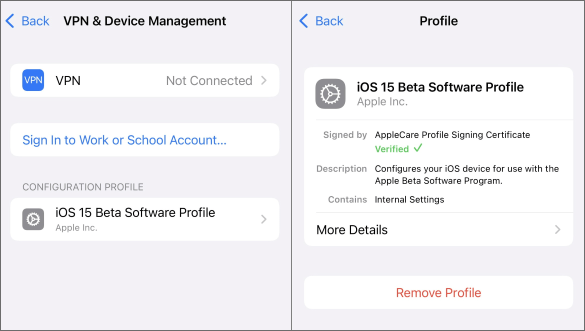
After restarting, you can update your device to the latest iOS version.
When Apple releases a new system update, its servers may become busy due to many users downloading it simultaneously, leading to slower update speeds or download failures. You can try updating later to avoid peak times. You can also visit Apple's system status page to check for any service interruptions.
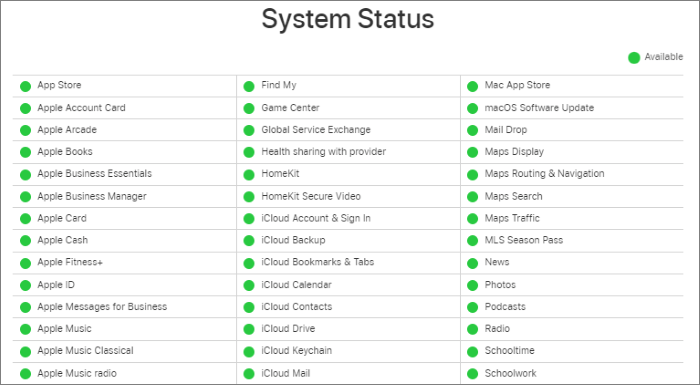
If the above methods fail, you can try using iTunes on your computer to manually update your iOS device to the new iOS version. Here are the steps:
Step 1. Open iTunes on your computer and connect your iPhone using a lightning cable. Once your iPhone is detected, click the "iPhone" button at the top of the window.
Step 2. On the right side of the screen, click the "Check for Update" button. A pop-up will appear; click "Download and Update" to confirm the process.

Note: If you want to know how to update your iPhone without iTunes, you can read this guide to find more solutions.
iOS System Recovery is a specialized system repair tool designed for iOS devices. It primarily addresses a range of system issues, such as the iPhone won't update, the iPhone being stuck in recovery mode or DFU mode, and more. With this software, users can quickly resolve these issues, restoring their devices to normal status while preserving the integrity of user data. Additionally, it provides a convenient method for updating or downgrading the iOS system.
Highlights of iOS System Recovery:
Here is how to use the iOS System to fix the iPhone won't update:
01Download the right version of the tool, install it on your computer, and launch it. Next, choose the "iOS System Recovery" option from the available modules.
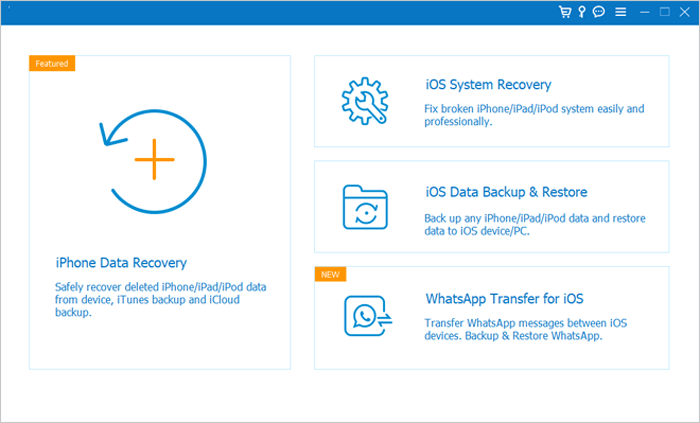
02Click the "Start" button on the screen to address the issue where your iPhone won't update.
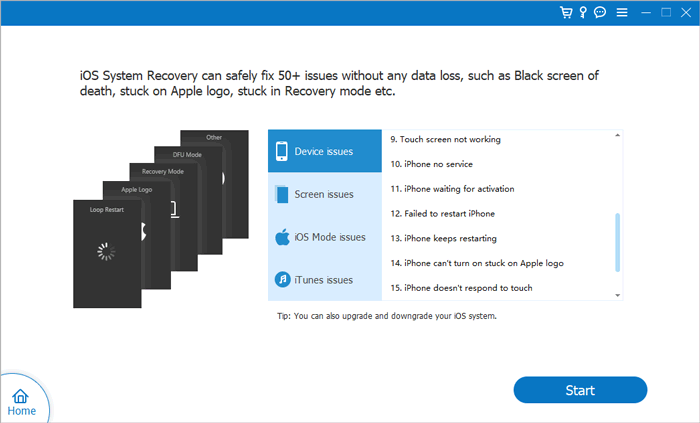
03Follow the instructions to verify the details of your iPhone carefully. Once confirmed, click the "Repair" button to begin the repair process.
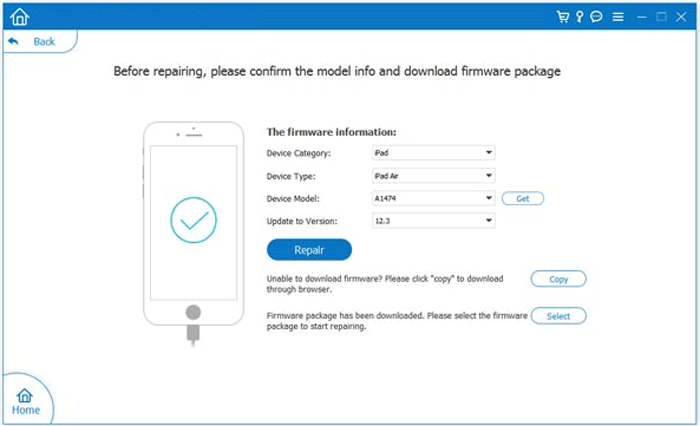
04The software will then download the latest firmware version specifically designed for your device. Within approximately 5 to 10 minutes, your iPhone will be successfully restored and resume normal operation.
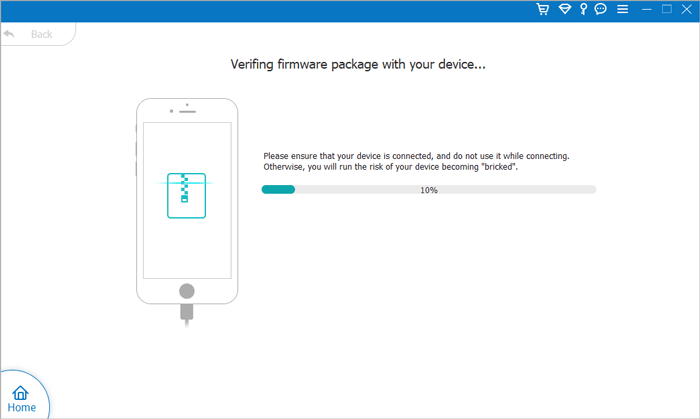
Here are all the methods to fix "why won't my iPhone update". When facing issues with updating your iPhone, there's no need to worry excessively. Most problems can be resolved by checking compatibility, optimizing network connections, freeing up storage space, and other common methods. If the issue persists, you can try using iOS System Recovery to easily resolve iPhone update issues without risking data loss.
Related Articles:
New iPhone 15 Stuck on Software Update? Here's How to Troubleshoot
iPhone Software Update Failed: How to Update to iOS 15/16 Smoothly
Troubleshooting for iPhone Stuck on Preparing Update [Top 10 Fixes]





